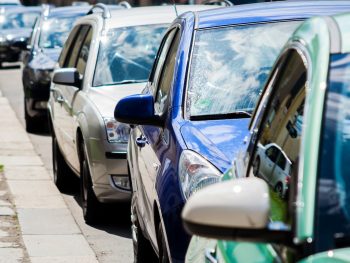Electric vehicles alone are not a panacea to climate change
UK efforts to cut transport emissions could fail unless congestion is also tackled, a new report finds.

Green Alliance says decisive action is needed now to not only set ambitious ZEV mandate targets but also to take steps to manage future traffic levels
Analysis by the think tank Green Alliance says that alongside the 2030 ICE ban, the number of cars on roads also needs to be reduced to make sure the UK hits its 2030 climate target.
And it’s calling for more emphasis on public transport and active travel to propel this, including greater national investment in public transport over the next decade, as well as more support for local authorities to improve facilities for active travel.
Transport accounts for nearly a third of UK carbon emissions and cars alone are responsible for 40% of that. But according to Green Alliance’s study, which analysed fast, medium and slow electric vehicle sales trajectories in the period up to the 2030 ICE ban, more action is needed to drive down vehicle use.
The study found that, even under the medium sales trajectory, the average annual mileage per car would have to fall by around 1,700 miles if emissions targets are to be met. Under the slow sales trajectory, the annual average mileage per car would need to be cut by almost 30%, or 2,300 miles a year fewer, to keep emissions on track.
While the Government has announced it will introduce a zero emission vehicle mandate, placing EV sales targets on car companies from 2024, details have not been outlined and Green Alliance says decisive action is needed now to not only set ambitious ZEV mandate targets but also to take steps to manage future traffic levels. This would provide “insurance” in the event that electric vehicle sales do not follow the fastest uptake trajectory over the next decade.
The report also highlights the additional economic benefits of traffic reduction. Shifting just 1.7% of car journeys to active travel would provide the UK with up to £2.5bn per year in health benefits while reducing congestion would help cut the estimated almost £8bn cost of congestion in 2018.
Helena Bennett, senior policy adviser at Green Alliance, said: “Switching to electric vehicles is the top priority for cutting emissions from cars, but it can’t be the only tool used to make transport greener. Better and more affordable public transport, safe cycle routes and walkable places must be a centrepiece of the Government’s transport strategy.”
Sarah Woolnough, chief executive of Asthma UK and the British Lung Foundation, also commented: “As the report shows, transitioning to cleaner vehicles is not a panacea for tackling toxic air and climate change. Instead, we need to see fewer vehicles and congestion on our roads altogether to protect people’s lungs and create a healthier and fairer society.”
To read the Green Alliance report, click here.














